Asus V66
Asus V66 Price in Bangladesh (BD)
As of October 2025, the price of the Asus V66 in Bangladesh is BDT 12,000. The featurephone has a 1.80-inch TFT, 256K colors display, 0GB of RAM and 32MB of internal storage. It also features a 0.3 MP primary camera. It has a 720mAh battery. This device is running on the - and is powered by the - chipset. The available colors for this featurephone are Silver, Blue, Orange. It will be available in one variant: 0GB/32MB priced at BDT 12000.

Asus V66 Specifications
| Launch | |
|---|---|
Announced We try to put down the date in which that specific device and its feature first got introduced by the manufacturer or trusted source. Or it could be dummy data if the device is in the rumored category. | 25 September, 2006 |
Status Status is usually used to mention the current market status of the device, it could be available, not available, upcoming, canceled, and more. SpecDecoder always tries to keep the device status according to the current market (may vary region-wise). | Discontinued. Released 28 September, 2006 |
| Price | |
|---|---|
Colors Colors that are made available for the specific model of the device are shown here. Colors may vary depending on the region. | Silver, Blue, Orange |
Models Models are the term that differentiates each product from the other one in the same category or brand. | |
Price The price of the device in Bangladesh and the USA is shown here with a currency symbol to clarify the amount precisely. Though the amount is not standard, it varies depending on the market, region, device color, and time. | 12,000.00 and $115.00 |
| BODY | |
|---|---|
Dimension The dimension or exterior physical measurement of the device which contains Length, Width, and height. For sliding or foldable devices, the measurement is provided in folded or slide-closed conditions. In a few phones, both may appear. Dimensions are usually expressed in two (2) different parameters which are: Inch (in.) and Centimeters (cm.) | 99.8 x 43.8 x 18.7 mm (3.93 x 1.72 x 0.74 in) |
Weight The weight (excluding SIM, Memory card, or any external component) of the phone is mentioned in this section if disclosed by the manufacturer or obtained from a trusted source. It is expressed in two (2) different units which are: Grams (gm.) and ounce (oz.). | 90 g (3.17 oz) |
Build If the phone manufacturer discloses the material used in the device then it'll appear in this section. i.e.: Glass front, glass back, aluminum frame denotes, the front glass is processed with glass protection, the rear cover or battery cover is made of glass only and the body is made of aluminum. | |
SIM Phones may have multiple SIM support such as Single SIM, Dual SIM, Dual SIM dual standby, Dual SIM (with e-SIM), and a few others. Also, the SIM size is mentioned in this section. SIM sizes: Full-size SIM (1FF), Mini-SIM (2FF), Micro-SIM (3FF), and Nano-SIM (4FF). | Mini-SIM |
| Display | |
|---|---|
Type The display type is mentioned such as TFT, IPS LCD, AMOLED, OLED, sAMOLED, Retina, and many other types. Also, the color schemes are mentioned along with the display refresh rate and other supportability features. | TFT, 256K colors |
Size Display sizes are measured diagonally. It varies from device to device. Also, screen-to-body ratio measurement takes part in this section to explain the amount of bezel the device has. Screen to body ratio often denotes how much area the screen is covering of the phone’s face. | 1.8 inches, 10.2 cm2 (~23.3% screen-to-body ratio) |
Resolution Resolution is the most used work in video files or displays technology. The resolution simply means the pixel count in each plane (horizontal and vertical). Now for example, if we say a display resolution is 1920x1080, then it means it has 1920 pixels horizontally and 1080 pixels vertically. Here, the aspect ratio would be Length / height which is 1920/1080 = 16/9 = 1.77. | 128 x 160 pixels (~114 ppi density) |
Protection Most smartphones provide display protection features to save from scratches and dents. If any protection feature is available in any smartphone then it'll appear in this section. | |
| Platform | |
|---|---|
OS OS denotes to Operating System which is one of the most essential elements to run a mobile device. | - |
Chipset Chipset or Processor is one of the most important elements for a mobile device. Different mobiles or smartphones might have different processors depending on the features. Chipset manufacturers differentiates their chips by unique model number. | - |
CPU CPU stands for Central Processing Unit. In the chipset, the configuration is shown in this tab. It explains how many cores are there in the processor or what is the clock speed, also it shows a visitor what type of architecture is used in that specific model of the chipset. | |
GPU GPU stands for Graphics Processing Unit. It is embedded on the chip used as a processor. The different processors might have different GPU profiles. GPU helps a mobile device to render the image or encode/decode any media file easily. | |
| Memory | |
|---|---|
Card Slot Card Slot explains if there is any memory or expandable storage slot to expand the storage in the device. | miniSD |
Internal It shows the internal storage structure of a device, like how many megabytes/gigabytes of RAM or ROM the devices have. Or how many variants are available from a storage perspective. | 32MB |
| Rear Camera | |
|---|---|
| Single | VGA |
Features Additional features except for capturing photos only are offered by the manufacturer in their cameras such as flash, HDR support, or modes are shown here. | - |
Video How many combinations you can use to capture videos using the rear camera of this device. This is mostly disclosed by the mobile phone manufacturer. | Yes |
| Front Camera | |
|---|---|
| NO | N/A |
Features Additional features except for capturing photos only are offered by the manufacturer in their cameras such as flash, HDR support, or modes are shown here. | - |
Video How many combinations you can use to capture videos using the front camera of this device. This is mostly disclosed by the mobile phone manufacturer. | - |
| Sound | |
|---|---|
Loudspeaker It shows if the device offers a loudspeaker option or not. Also, if a device supports stereo sound or other formats it'll appear in this field. | Yes |
3.5mm Jack A universally accepted lossless audio jack that has a diameter of 3.5 mm. More or less every mobile device uses this port to deliver the audio signal to pass on enhancements accessories such as an earphone or external amplifier system. | No |
| NETWORK | |
|---|---|
Technology Technology denotes the network standard which is available in that device. Mobile devices may support various network standards depending on the region or device type. Usually, we've noticed mobile manufacturers provide CDMA, 2G, 3G, 4G, and 5G standards in their cell phones nowadays. This section is designed to portray all the supported network technology in a device. Network technology may vary from one device to another. | GSM |
| 2G bands | GSM 900 / 1800 / 1900 |
| GPRS | Class 10 |
| EDGE | No |
| COMMS | |
|---|---|
| WLAN | No |
Bluetooth BlueTooth is a channel/name of communication method based on a certain radiofrequency. From the very beginning, it has been used by mobile devices to share files in between two devices. The usual range is from 10m to 100m. | No |
| Positioning | No |
NFC NFC is short-range wireless communication technology. By using this technology we can do contactless payments. Which share data over radiofrequency. | No |
Radio Usually most android smartphones including feature phones have these radio options. Users can tune the FM Radio channel by using this feature. | FM radio |
Infrared IR Blaster is an InfraRed signal transmitter or InfraRed LED which is placed in smartphone devices to control the remote-controlled device by the phone (without having the remote of that appliance or device). | No |
USB Type USB is an industry-standard bus using which users can connect peripherals/enhancement devices to a system. i.e.: connecting a mouse to a computer using the USB port. It is a bus where data send/received may take place depending on the purpose. | Proprietary |
| Features | |
|---|---|
Sensors In this field you'll see all the embedded sensor names on the device such as: Accelerometer, Gyroscope, Proximity, Barometer, Temperature, Ambient Light Sensor, and similar. | - |
| MP3/MP4/3GP/H.263/MIDI player PC Sync Organizer Stop Watch | |
| Battery | |
|---|---|
Type There are various types of batteries are used in mobile devices. Among them, the most popular is Li-Po and Li-ion. | Removable Li-Ion 720 mAh battery |
Charging The charging information such as: how much time it requires to get fully charged or if any other charging features are supported by the device. Such as Quick Charge, Fast Charge, HyperCharge, or similar features. | |
| Tests | |
|---|---|
Performance In this field, the test result from different benchmark applications are shown to justify the performance of the device from a different perspective. Measures take place based on CPU, GPU, Audio engine, Camera, and a few other terms. | - |
| Standby | 200 H |
Our Rating:
Build
0Performance
0Camera
0Connectivity
0Battery
0Total
0Ratings are based on specifications and the price of the device.
Asus V66 Price in Bangladesh: October 2025
The Asus V66 will be available in one variant (0GB RAM/32MB ROM). Now, the Asus V66’s price is expected to be 12000 taka in Bangladesh. The V66 has a Removable Li-Ion 720 mAh battery battery with () charging. This device is running on the - and is powered by the - chipset.
| Featurephone Model | Asus V66 |
| Price | BDT 12,000 |
| Display | 1.8 inches, 10.2 cm2 (~23.3% screen-to-body ratio) |
| RAM | 0GB |
| ROM | 32MB |
| Release | 2006 September |
Frequently Asked Questions About the Asus V66:
Answer: The Asus V66 will be released in September 2006.
Answer: The price of the Asus V66 in Bangladesh is BDT 12,000.
Answer: The Asus V66 costs USD 115 in the USA.
Answer: No, Asus V66 dont have 5G network bands.
Answer: No.

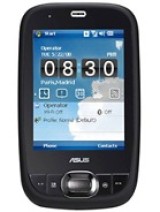

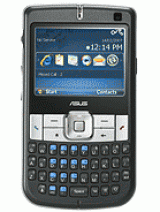
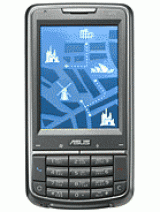









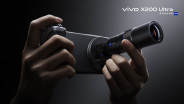
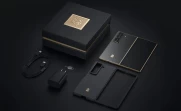
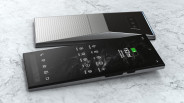


No Reviews Yet !